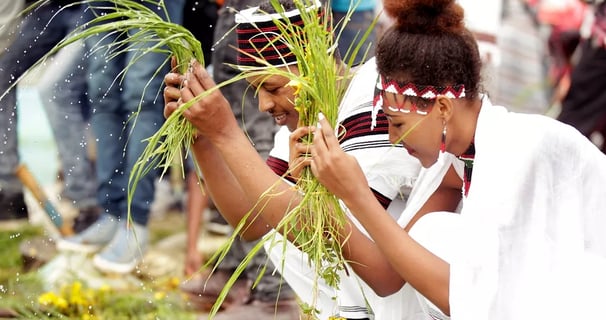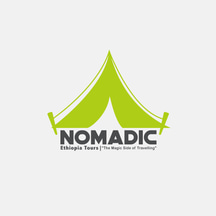Holidays and Celebrations in Ethiopia
Enkutatash (New Year) – September 11 (or 12 in leap years)
Ethiopia follows the ancient Julian calendar, so the New Year falls in September. Enkutatash means "gift of jewels" and is celebrated with church services, family gatherings, and flower-filled festivities, especially by children who sing traditional songs door to door.
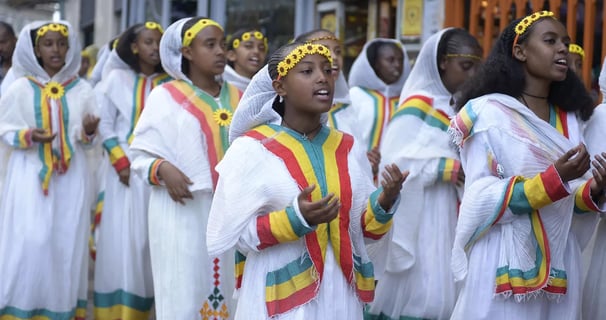

2.Meskel (Finding of the True Cross) – September 27 (or 28 in leap years)
Meskel commemorates the discovery of the cross on which Jesus was crucified. Celebrated with bonfires (called Demera), processions, and colorful ceremonies led by the Ethiopian Orthodox Church. The largest celebration occurs in Meskel Square, Addis Ababa.
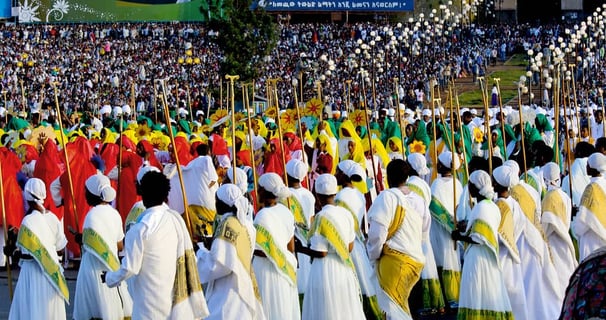

3.Timket (Epiphany) – January 19 (or 20 in leap years)
One of Ethiopia’s most spectacular religious festivals, Timket celebrates the baptism of Jesus in the Jordan River. It features processions, priestly blessings, and ceremonial re-enactments with replica Arks of the Covenant. Best experienced in Lalibela, Gondar, or Addis Ababa.
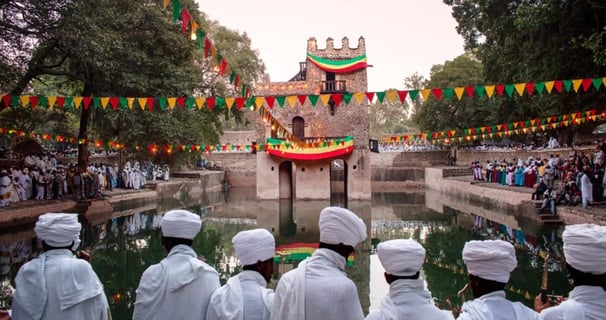

Genna (Ethiopian Christmas) – January 7
Observed by Orthodox Christians, Genna is marked by early morning church services, traditional feasts, and unique local sports. In Lalibela, thousands of pilgrims gather to celebrate in the rock-hewn churches.
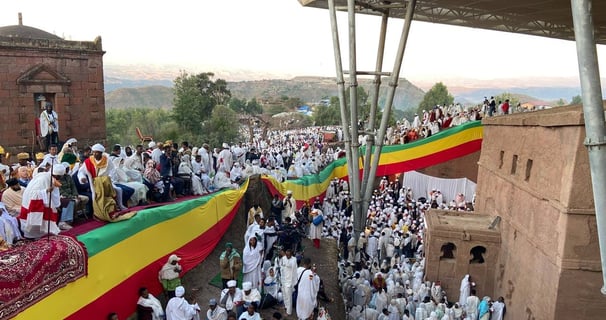

Eid al-Fitr – Date varies (Islamic calendar)
Marks the end of Ramadan. Celebrated by Ethiopia’s Muslim communities with morning prayers, communal feasts, and acts of charity. Particularly vibrant in Harar and other Muslim-majority regions.
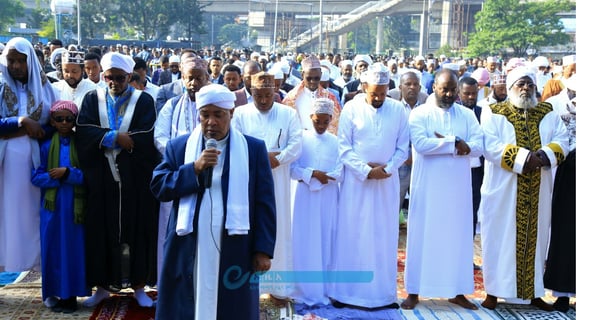

Irreecha – Late September / Early October
A thanksgiving festival of the Oromo people, held near lakes or rivers. Participants wear traditional attire and give thanks to Waaqa (God) for the end of the rainy season. The largest Irreecha is held in Bishoftu.
